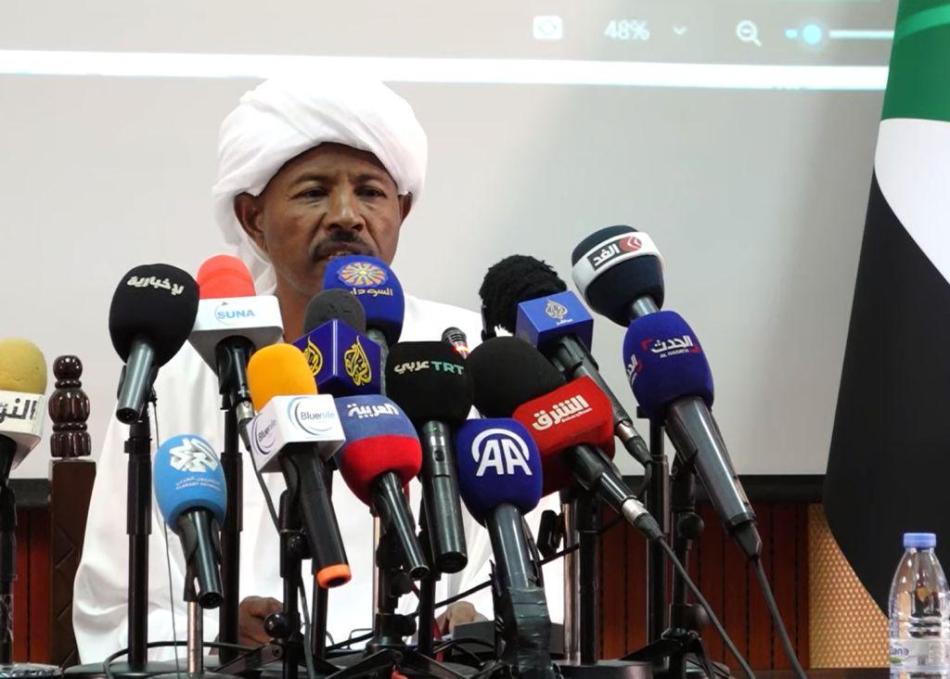December 23, 2024 (PORT SUDAN) – Sudan’s Attorney General, al-Fateh Tayfour, on Monday accused the Rapid Support Forces (RSF) of using banned weapons, including white phosphorus, and targeting over half a million civilian sites.
Speaking at a weekly briefing at the General Intelligence Service headquarters in Port Sudan, Tayfour said the “militia” – referring to the RSF – “used prohibited weapons like white phosphorus, in a clear violation of international law.”
He stated that the RSF targeted over 540,000 civilian sites, including 80% of residential homes. They also put 250 hospitals out of service, using 15 for military purposes, destroyed dialysis centres, looted 126 banks, damaged five museums, and attacked 40 diplomatic missions.
Tayfour accused the RSF of damaging 90% of Sudan’s industrial infrastructure, causing losses of $150 billion.
He emphasized that the RSF released 19,481 inmates from prisons and recruited them into their ranks.
Tayfour, who heads the National Committee for Investigating Violations of National and International Humanitarian Law, said the RSF used starvation as a weapon, preventing citizens from farming and working.
He added that they prevented 15,400 children from attending school, recruited 10,900 child soldiers, and committed crimes against 10,000 children. They also committed violations against women, including selling girls, forcing them into pregnancy, and raping 966 women and girls in Khartoum and Al Jazirah.
The Attorney General pointed to the looting of the Al Jazirah agricultural project’s warehouses and seed stores, which were then sold to citizens as food, leading to the death of 700 people in Al Hilaila, Al Jazirah state, due to poisoning.
He revealed that 31,000 cases have been filed related to RSF violations, confirming the possibility of issuing in absentia rulings against fugitive defendants located in six unnamed countries. He urged these countries to cooperate with Sudan.
“We expect countries to cooperate in handing over criminals in accordance with UN agreements and the ٌRiyadh Agreement. If this does not happen, there will be trials in absentia, and we will reciprocate,” he added.


